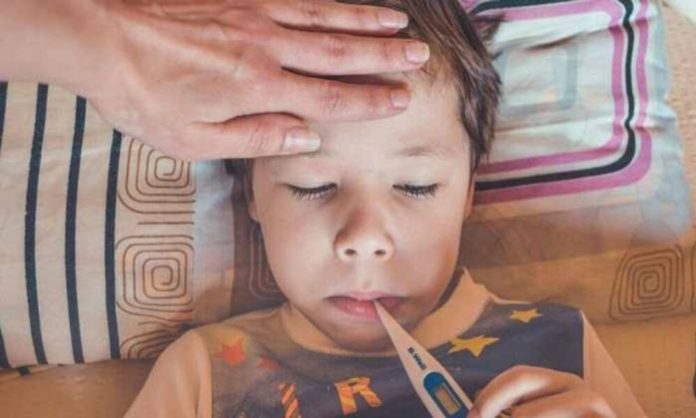After coronavirus and monkeypox, Tomato Flu is trending in India. Around 82 cases of Tomato Flu or Tomato Fever have been reported in India since May 2022, reveals a Lancet study. The Kerala state reported the first case of the Tomato virus on May 6, 2022. Ever since Tomato Flu cases have surged in India, more than three months after its inception.
The Lancet study states that this common contagious disease generally targets children between one and five years of age and adults with weaker immunity. The disease reportedly affects the mouth, hand and foot, claimed the study.
Tomato Flu; A New Scare?
Scientists are still trying to identify exactly what this virus is. The infection is referred to as tomato flu because of the painful red blisters it produces on the body. It is said to be very contagious. Children are particularly vulnerable because it spreads easily through close contact, such as via nappies, touching unclean surfaces or putting things in their mouths.
“The rare viral infection is in an endemic state and is considered non-life-threatening; however, because of the dreadful experience of the Covid-19 pandemic, vigilant management is desirable to prevent further outbreaks,” the Lancet article said.
Read More: Here’s How Climate Change Is Affecting Our Bodies
“The virus could also be a new variant of the viral hand, foot and mouth disease. A common infectious disease targets mostly children aged one to five years and immunocompromised adults. Some case studies have even shown hand, foot and mouth disease in immunocompetent adults.” Further adding.

Tomato Flu symptoms resemble those of Covid, chikungunya, and dengue fever. Hence, it has made it difficult for doctors to diagnose the condition. The latter two are common in India during the rainy season and are spread by mosquitoes. Chikungunya is particularly widespread in Kerala.
The Lancet article also states that “tomato flu could be an after-effect of chikungunya or dengue fever in children rather than a viral infection.”
According to Dr. Suneela Garg, a senior health official in the Delhi government, “I agree that chikungunya and dengue can leave children vulnerable to tomato flu because their immune systems are weaker. We don’t have any cases in Delhi yet and I am confident it won’t become a problem.”
Symptoms & Treatment
The symptoms include fatigue, nausea, vomiting, diarrhea, fever, dehydration, swelling of joints, body aches, and common influenza-like symptoms. Skin irritation and blisters all over the body are also commonly seen.
Read More: Here’s Why Rainwater Is Harmful To Drink
According to health experts, there are no disease-specific medications available, adding that treatment is similar to other viral infections – isolation, rest, plenty of fluids, and a hot water sponge for relief of irritation and rashes. Furthermore, The best solution for prevention is the maintenance of proper hygiene and sanitization of the surrounding necessities as well as preventing the infected child from sharing toys, clothes, and food, with other non-infected children.
Stay tuned to Brandsynario for the latest news and updates.





































